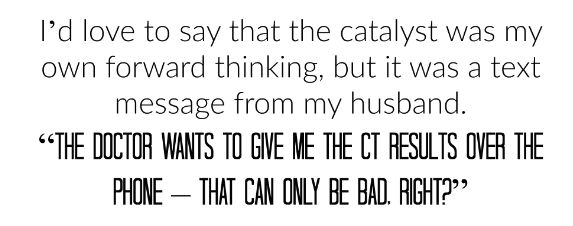June and July. It’s the academic new year. Time for new jobs, fellowships, academic promotions (and yes, it’s ‘the killing season’ too). It’s a great time to assess your professional life and make adjustments. Many physicians have entirely full plates, but continue to accept new responsibilities without regularly subjecting these opportunities to the scrutiny they deserve. Rarely do we take complete stock of all of our activities and judge them against tough standards – are they aligned with our values, our aspirations, and our talents? Among those that are, how do they rank in order of importance? What (or who) determines that relative importance? Twelve months ago, I did this prioritization exercise.

And it all came crashing down.
I wiped my calendar completely clean, giving up things I really wanted to do, things I was committed to do but didn’t really want to do, and everything in between. I gave away first author and keynote spots to colleagues, turned down high-paying speaking engagements and consulting opportunities, backed out of volunteer committee work that I loved, and bailed on other professional commitments I’d made. I stopped traveling for work. No more nights or weekends. I still spent 15 hours days and weeks at a time in the hospital, but as a visitor instead of a doctor. Contrasted with every year since starting medical school, I barely went to work at all.
I abandoned my blog and online communities. I sold my company. I went days without checking voicemail or email. I tickled and hugged my kids more than ever before. I also cried and yelled more, and put down my ridiculous ‘do it all’ facade to let neighbors bring us dinner and colleagues cover for me at work. I even stopped worrying about saying no, letting people down, backing out…no small feat.
It was an abrupt stop – no transition plan. I literally made a list of every professional activity and commitment, no matter how small, and took the steps to formally excuse myself from any further contribution in the coming year. The list was long – a lot longer than I would have estimated. In almost all cases, colleagues and organizations were wonderfully supportive, and welcomed me to simply let them know if and when I was ready to come back. The old me might have easily overlooked the “if” part. The new me recognized it as an incredible opportunity to conduct an audit of my professional life.
We all have things we do uniquely well. You may be especially skilled at caring for patients in a certain way, or in teaching, writing, researching, advocating, administrating, leading, and so on. In my opinion, you should only spend time doing what love to do, what you do best, or what is your best opportunity for growth and learning. Figuring out how – and for whom – you can make the greatest contribution is the key. It is aligning your talents and passions with the people you can best serve, and giving the best of yourself in that space. It is aligning the activities you choose to do as part of that service with your core values and life purpose. It is recognizing that you do indeed have the autonomy to make those choices and to design your life around them.

To be sure, there is a certain value in saying yes to a wide variety of things, especially in the early career stage. You likely can think of serendipitous benefits you’ve gained by saying ‘yes’ to something out of the blue. At the same time, you can probably identify at least one thing you’d like to stop doing if only you didn’t ‘have’ to. It’s not a new idea that saying ‘yes’ to any particular thing is a ‘no’ to something else (and vice versa). And, you’ve probably considered the irony of the plural ‘priorities’.
So, as I’m starting to welcome more of my prior work back into my life this year, I am putting each activity and role to the test. If it doesn’t pass my criteria, I’m not saying yes. So, in the spirit of having a happy new academic year, it might be a good time to consider a change beyond simply moving up another rung on the ladder. In this era of burnout, you owe it to yourself to go through the exercise of identifying each and every way your time and energy are spent. Be sure the person who approves that spending is you.







